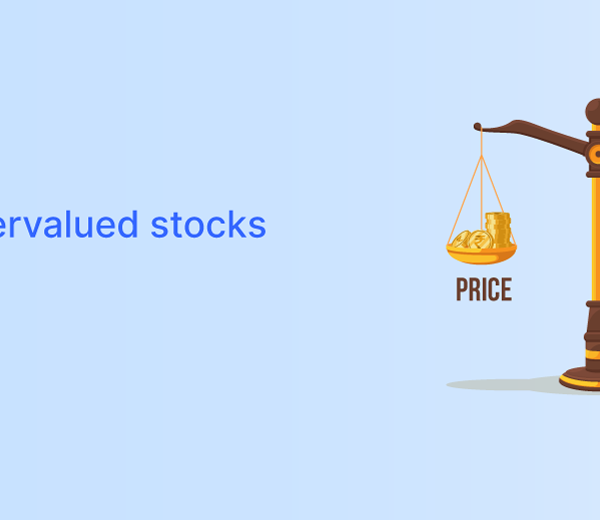When it comes to planning for retirement, you envision a life of relaxation, exploration, and the freedom to enjoy the fruits of your work.
However, a silent enemy can slowly erode the dreams you have built for your golden years: inflation. Inflation in retirement planning is a topic of utmost importance that deserves your attention and understanding.
Picture this: You have diligently saved and invested for your retirement, expecting your savings to sustain you comfortably. As the years pass, the cost of living increases, and your purchasing power diminishes. Suddenly, the retirement you envisioned seems less secure.
This is precisely what we discuss in this article, “Inflation In Retirement Planning.” We will explore the significance of considering the inflation rate in retirement planning. We will also examine strategies and insights that can help safeguard your financial future, ensuring that your envisioned retirement remains a reality.
Sign up with Koshex today to get hyper-personalized advice and insights into retirement planning.
The Significance of Effective Retirement Planning
One cannot overstate the significance of effective retirement planning. It is the difference between peacefully enjoying your golden years and struggling to make ends meet as inflation erodes your purchasing power.
However, with a well-thought-out plan, your retirement savings will stay within your needs and expectations. The following points will help you calculate the correct retirement amount.
Historical Trends of Inflation Rates
Look back at historical data and observe that inflation rates have fluctuated over the years. Some periods have seen relatively low inflation, while others experienced soaring inflation rates. These fluctuations have significant implications for retirees.
Consider this: if you retire with a fixed income or retirement savings that does not grow at a rate equal to or greater than the inflation rate, your ability to afford the same goods and services will erode gradually. This leads to a reduced standard of living and potential financial hardship.
Also Read: The Role Mutual Funds Play in Retirement Planning
Incorporating Inflation Rate Projections
Retirement planning is not a one-time job. It is an ongoing process that needs to account for inflation. In essence, you are planning for a moving target.
As you project your retirement needs, it’s vital to incorporate realistic inflation rate projections. Use an average inflation rate of around 4-6% annually, as per the RBI projection.
But this can vary based on your specific circumstances and economic conditions. This projection provides a buffer against inflation’s impact on your retirement savings.
Accounting for Inflation in Retirement Planning
Now that we understand the impact of inflation on retirement savings. Exploring effective strategies and tools to combat its erosive effects is crucial. Retirement planning should be dynamic, adapting to the changing financial landscape, and accounting for inflation is a central part of this process.
Invest Wisely
Ensure that you align your investment portfolio with your retirement goals and budget. A well-diversified portfolio can provide the necessary returns to keep up with inflation. Regularly review and adjust your investments to maximize their performance while minimizing risks.
Diversify Your Investments
One of the most powerful tools in your arsenal is diversification. While having a portion of your portfolio in conservative, low-risk investments is essential, allocating a portion to investments with the potential for higher returns can help your money grow at a rate that outpaces inflation.
Regularly Review and Adjust
Inflation doesn’t follow a fixed pattern, and its rate can fluctuate. Therefore, it is crucial to regularly review your retirement plan and adjust it according to the current inflation rate.
Healthcare expenses tend to rise with age, and healthcare inflation often outpaces general inflation.
Regular check-ups, preventive care, and health insurance are critical components of retirement planning. By revisiting your plan, you can ensure that you have adequate resources to cover rising healthcare costs.
Maintain a Balanced Budget
To ensure your retirement income keeps up with rising living costs, it is important to maintain a balanced budget. This involves tracking your expenses, making necessary adjustments, and having a contingency plan for unexpected costs.
Start by tracking your expenses meticulously. Record every expenditure, whether it is regular monthly bills or unexpected costs. This comprehensive view of your spending habits will give you valuable insights into where your money is going.
Analyzing your expenses helps identify areas where you may need to spend more. It could be dining out frequently, subscriptions you no longer use, or unnecessary impulse purchases. Staying disciplined with your spending can go a long way in preserving your financial security.
Explore Healthcare and Insurance Options
Healthcare costs can be a significant part of your retirement expenses. Exploring healthcare plans and insurance options can help you manage these costs effectively.
Additionally, long-term health insurance can protect your savings from being depleted due to medical expenses.
Also Read: Health Care Planning for Retirement
Stay Informed
Staying informed about economic trends, inflation rates, and changes in the financial landscape is crucial. Knowledge is your best defense against inflation’s adverse effects. You can make informed decisions about your investments and financial planning when you clearly understand the economic environment.
By actively implementing these strategies and maintaining a proactive approach to retirement planning, you can better account for inflation’s impact.
Final Takeaways
Defeating inflation in retirement planning is essential. Your golden years should be filled with comfort, contentment, and the realization of your dreams, not by the relentless erosion of your financial security. Inflation in Retirement Planning is a crucial topic, and we have explored its significance deeply and the strategies to counter it.
Inflation can silently and persistently chip away at your purchasing power over time, leading to less financial security in retirement. But if you arm yourself with knowledge and proactive strategies, you can secure your financial future and enjoy the retirement you deserve.
By understanding the role of the inflation rate in retirement planning, incorporating realistic inflation rate projections, and actively accounting for inflation in your financial strategies, you can ensure your standard of living remains intact throughout your retirement journey.
Take control of your financial future and sign up with Koshex, your trusted partner in personalized investment recommendations and insights for retirement planning.
Frequently Asked Questions (FAQs)
Q1. What is the average inflation rate I should consider for my retirement planning?
Ans. The average inflation rate varies, but experts often suggest using a projection of around 4-6% annually. However, this can be influenced by your specific circumstances and economic conditions.
Q2. How frequently should I review and adjust my retirement plan to account for inflation?
Ans. It’s advisable to review your retirement plan annually and make adjustments as needed. Changes in economic conditions, inflation rates, or your financial situation may warrant updates to your plan.
Q3. Are there specific investments that can help me combat the effects of inflation in retirement?
Ans. Diversifying your investment portfolio is a powerful strategy. Allocate a portion to investments with growth potential to outpace inflation while also maintaining conservative, low-risk investments.
Q4. What are some practical ways to maintain a balanced budget in retirement?
Ans. Keeping a balanced budget involves tracking expenses, making necessary adjustments, and having a contingency plan for unexpected costs. Staying disciplined with your spending and financial planning is vital.









Leave a Comment